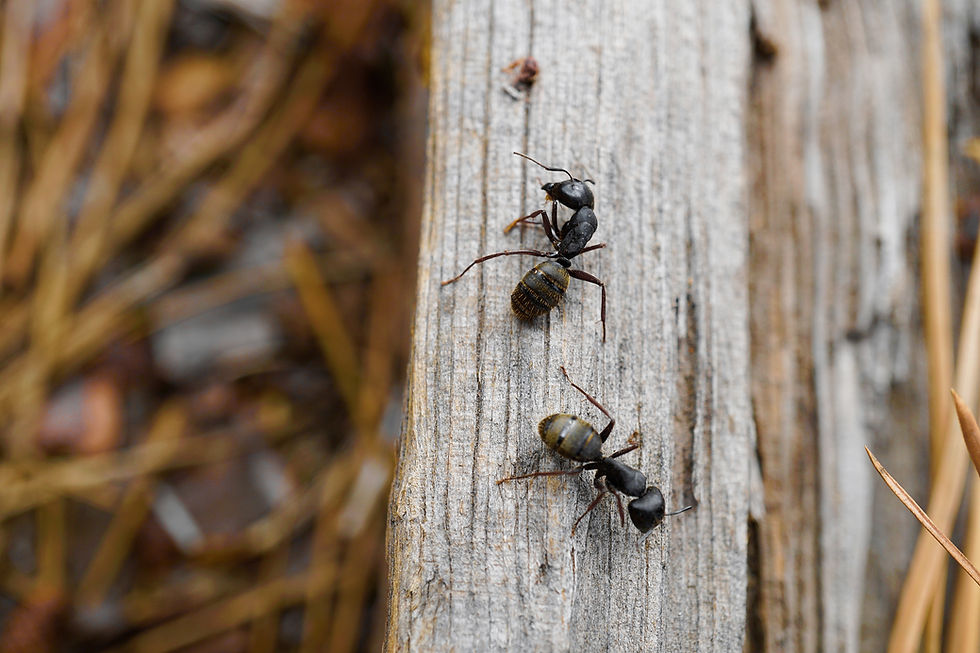Fleas: Tiny Pests, Big Problems—How They Affect Health and Why You Need Professional Help
- VecPest

- Dec 31, 2024
- 4 min read

It starts with an itch—your pet scratching incessantly or a small, mysterious bite on your ankle. Fleas may be tiny, but they can wreak havoc on your home, your health, and your peace of mind. While they’re most commonly associated with pets, fleas can quickly multiply and infest your living space, turning a small problem into a big headache.
In this blog, we’ll explore how fleas can affect your health, why they’re so hard to eliminate, and why hiring a professional is the best way to stop them in their tracks.
1. Fleas: The Silent Hitchhikers
Hook: Fleas don’t knock before entering—they hitch a ride and make themselves at home.
Fleas are external parasites that latch onto animals or humans to feed on their blood. They’re incredibly opportunistic, hopping onto your pets during walks or even entering your home on shoes, clothing, or other animals. Once inside, they quickly lay eggs, turning a single flea into a full-blown infestation.
🧐 Fun Fact: Fleas can jump up to 8 inches high—200 times their body length!
Practical Tip: Wash your pet’s bedding and vacuum regularly to reduce the chances of fleas establishing themselves.
2. The Health Risks of Fleas
Hook: A flea bite isn’t just itchy—it can come with serious health consequences.
Fleas can transmit diseases like typhus and cat scratch fever, as well as tapeworms to both pets and humans. Their bites can also cause allergic reactions, resulting in itchy, red welts that may become infected if scratched. For pets, constant scratching from flea bites can lead to hair loss, anemia, and severe skin infections.
📊 Stat Spotlight: The CDC warns that flea-borne diseases are on the rise, with cases of flea-borne typhus increasing in certain regions.
Practical Tip: If your pet is scratching more than usual, consult a vet immediately for a flea treatment plan.
3. Flea Allergies: When a Bite Becomes a Bigger Problem
Hook: For some, a single flea bite can turn into an all-out allergy attack.
Flea Allergy Dermatitis (FAD) is a common condition in pets caused by an allergic reaction to flea saliva. Even one bite can cause extreme itching, inflammation, and skin irritation, making your furry friend miserable. Humans can also develop allergic reactions, with symptoms ranging from hives to respiratory issues.
📢 Quote: “Flea allergies are one of the most common dermatological problems in pets, and prompt treatment is crucial,” says Dr. Karen Becker, a holistic veterinarian.
Practical Tip: Use flea prevention treatments year-round to protect your pets from bites and allergies.
4. Why Are Fleas So Hard to Get Rid Of?
Hook: Think a flea infestation will clear up on its own? Think again—these pests are masters of survival.
Fleas have a four-stage life cycle: egg, larva, pupa, and adult. While adults may be visible, eggs and pupae are often hidden in carpets, upholstery, and crevices, waiting to hatch when conditions are right. DIY treatments often fail to address these hidden stages, allowing the infestation to persist.
🔎 Expert Insight: “The flea life cycle makes them incredibly difficult to eliminate without professional-grade treatments,” says entomologist Dr. Michael Potter.
Practical Tip: Regularly vacuum and steam clean areas where your pets spend time to remove flea eggs and larvae.
5. DIY vs. Professional Help: Why Experts Make a Difference
Hook: Sprays and powders might promise results, but can they really solve the problem?
Store-bought flea treatments may kill adult fleas but rarely address eggs and larvae, leading to recurring infestations. Professional pest control services use targeted treatments that eliminate fleas at all stages of their life cycle, ensuring your home stays flea-free.
📢 Quote: “A professional approach not only removes fleas but also prevents re-infestation through customized solutions,” says Steve Durham, president of a pest management company.
Practical Tip: Schedule a professional inspection to assess the extent of the infestation and determine the most effective treatment.
6. Protecting Your Home and Pets from Future Infestations
Hook: Once the fleas are gone, keeping them away requires a proactive approach.
Flea prevention starts with treating your pets using veterinarian-recommended flea control products. Additionally, maintaining a clean home by vacuuming carpets, washing pet bedding, and sealing entry points can help prevent fleas from returning.
🌿 Pro Tip: Fleas dislike the scent of cedar and lavender. Use essential oils in your cleaning routine or place cedar chips in pet areas as a natural deterrent.
Practical Tip: Treat outdoor areas where fleas might breed, such as shady spots in your yard, to reduce the risk of reinfestation.
Wrapping Up: Take the Bite Out of Flea Problems
Fleas are more than a nuisance—they’re a threat to your health, your pet’s well-being, and your home’s comfort. While prevention is key, infestations can happen even in the cleanest homes. Hiring a professional ensures that the problem is addressed thoroughly and effectively, giving you peace of mind.
Don’t let these tiny pests take over your home or harm your loved ones. Act quickly, stay vigilant, and remember: a flea-free home is a happy home!





Comments